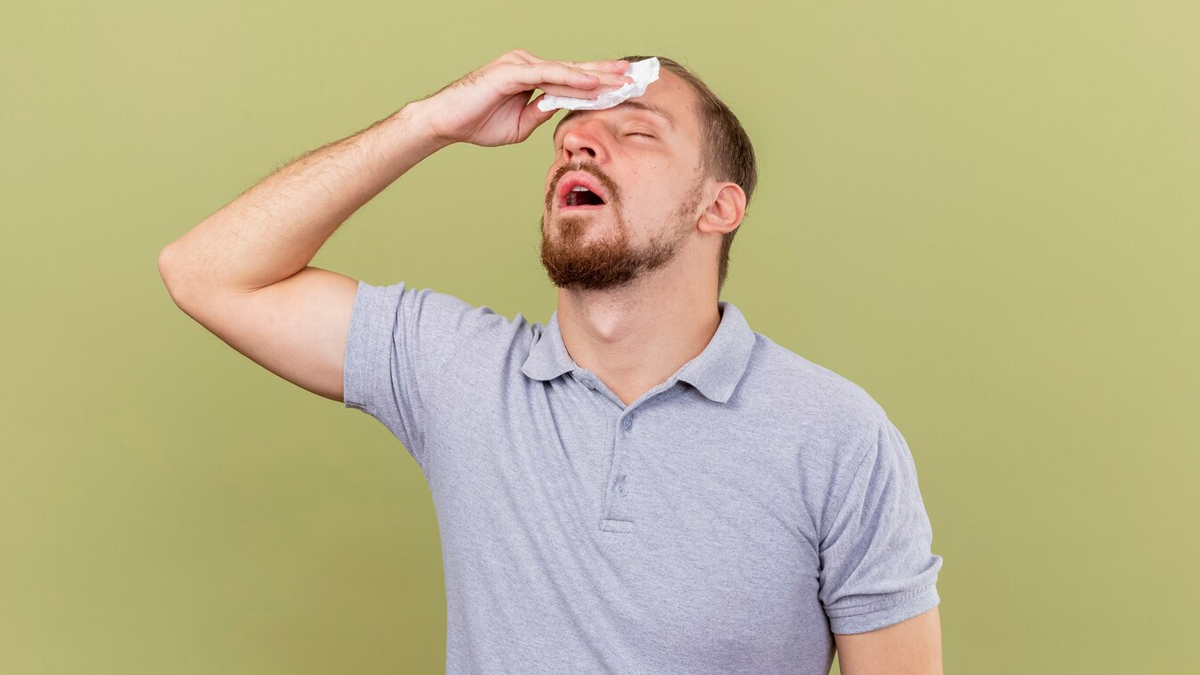
Hot flashes are characterised by sudden sensations of intense heat, typically experienced in the face, neck, and chest, often accompanied by sweating and flushing, and sometimes followed by chills. They are most commonly associated with women experiencing menopause. In fact, more than 80% of menopausal women are said to have hot flashes. But did you know that while uncommon, men too can develop hot flashes? In an interaction with the OnlyMyHealth team, Dr Shashank M S, Consultant - Urology and Renal Transplant, Aster CMI Hospital, Bengaluru, sheds light on why it occurs.
Table of Content:-
What Causes Hot Flashes In Men?

“Hot flashes in men are less common than in women but can still affect a significant number, especially as they age,” says Dr Shashank, adding that studies show that about 20–30% of ageing men may experience hot flashes, often linked to a gradual decline in testosterone levels.
According to the doctor, hot flashes are more common and intense in men undergoing Androgen Deprivation Therapy (ADT) for prostate cancer, with up to 80% affected. This is because the treatment significantly lowers testosterone levels, the primary male sex hormone. Testosterone plays a key role in regulating the body's temperature control system. When it's suppressed, the hypothalamus, or the brain’s thermostat, becomes more sensitive to even slight changes in body temperature, triggering sudden feelings of heat, sweating, and flushing. Since ADT causes a rapid and significant drop in hormone levels, the hot flashes can be more intense and frequent than those experienced by women during menopause.
In otherwise healthy ageing men, hot flashes may be milder and less frequent. While not everyone experiences them, hormonal changes during midlife, sometimes called andropause, can make hot flashes a real and uncomfortable symptom for many men.
Could Hot Flashes Be A Sign Of An Underlying Health Condition?

Unfortunately, the answer is yes. Hot flashes in men can sometimes signal an underlying health issue. “While they’re often related to low testosterone levels due to ageing or hormone therapy, they can also point to problems like thyroid disorders, infections, or even certain cancers,” highlights Dr Shashank. “Conditions affecting the hypothalamus or pituitary gland, parts of the brain that control hormones, can also trigger hot flashes.”
In some cases, stress, anxiety, or medications may be the cause.
If a man experiences frequent or unexplained hot flashes, especially along with weight loss, fatigue, or other symptoms, it’s important to see a doctor for a full evaluation and necessary tests.
Also Read: Hot Flash Is A Common Symptom Of Menopause: What Are The Triggers?
Treatment Options And Lifestyle Changes

According to Dr Shashank, to manage hot flashes in men, treatment often focuses on balancing hormone levels, especially testosterone. “If levels are low, testosterone replacement therapy (TRT) may help, though it’s not suitable for everyone. Lifestyle changes can also make a big difference, like regular exercise, a healthy diet, stress management, and good sleep hygiene all help regulate body temperature and reduce symptoms.”
Moreover, avoiding triggers like spicy foods, caffeine, alcohol, and hot environments may also prevent flare-ups.
In some cases, medications like antidepressants or gabapentin are used. It's important to consult a doctor to find the safest and most effective treatment based on individual needs.
Conclusion
While hot flashes are often associated with menopausal women, they can also affect men, especially those undergoing hormone-related treatments like ADT or experiencing age-related hormonal changes. Recognising the symptoms and understanding their root cause is the first step toward effective management. With the right medical guidance, lifestyle adjustments, and in some cases, treatment, men can find relief and improve their quality of life. If hot flashes are frequent, intense, or unexplained, it’s important to seek medical advice to rule out any underlying health concerns.
Also watch this video
How we keep this article up to date:
We work with experts and keep a close eye on the latest in health and wellness. Whenever there is a new research or helpful information, we update our articles with accurate and useful advice.
Current Version